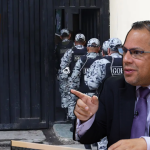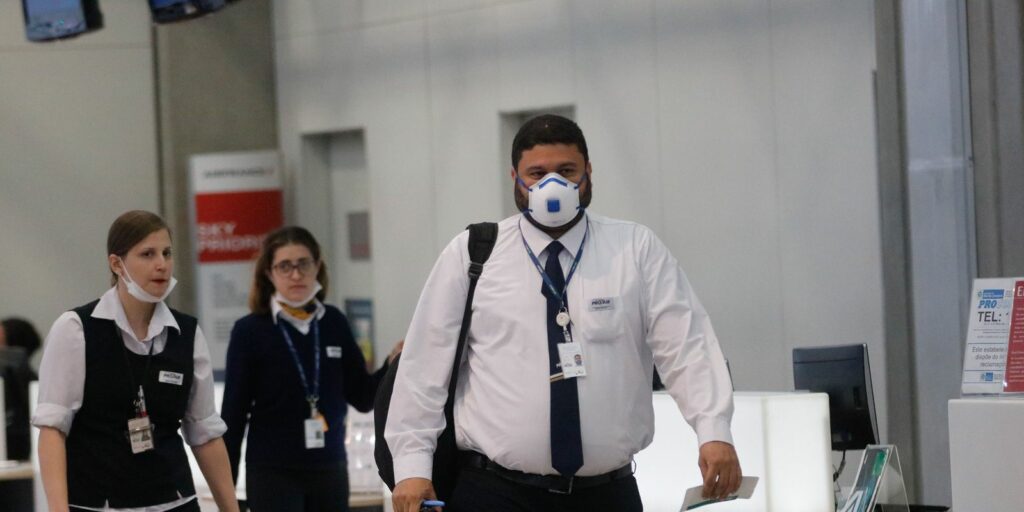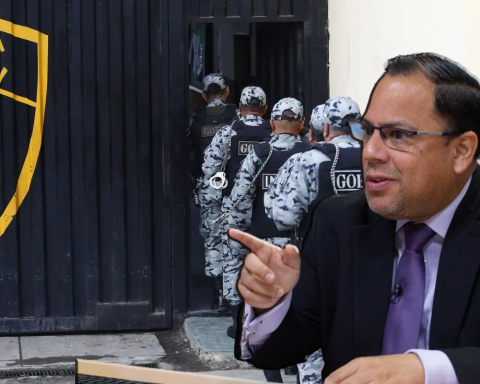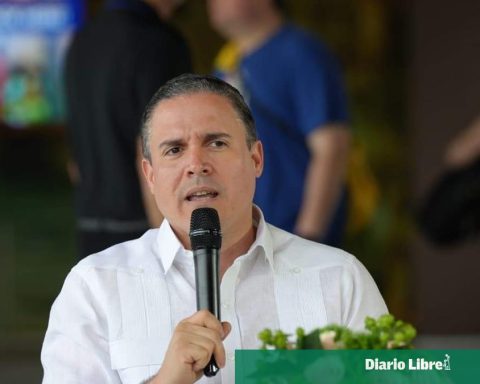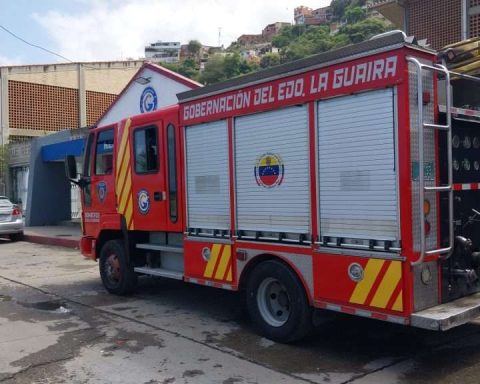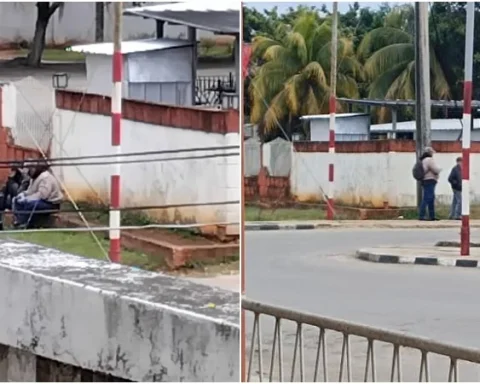An atmosphere of expectation and disbelief abounds in the different parliamentary committees, after this Tuesday, December 27, the Supreme Court dismissed the call of President Gabriel Boric and finally rejected the holding of a new contest for National Prosecutor, completing the fifth of candidates with Erika Maira, an expert lawyer in gender violence and former union leader.
After the Senate rejected the President’s two previous proposals to head the Public Ministry, both José Morales and Marta Herrera, pro-government and opposition parliamentarians reflected on the doubts that arise from the appointment of Maira, who currently serves as Manager of the Division of Attention to Victims and Witnesses of the National Prosecutor’s Office.
Senators from different political parties warned about the difficulty of making this announcement in the context of a district week, which is why, they say, the process of information and socialization of the new candidate’s background becomes even more complex. This, considering that President Boric has five business days to choose a new candidate from the list proposed by the Supreme Court, so that he may submit to subsequent scrutiny by the Upper House, also within a maximum period of five days.
The head of Attention to Victims of the Public Ministry was included in the quina for National Prosecutor through the votes cast by Sergio Muñoz, Gloria Ana Chevesich, Haroldo Brito, Jorge Dahm, Manuel Valderrama and Leopoldo Llanos. On the first day of exposure of her as a member of the quina, she quickly revealed her history on her Twitter, where she is seen to be quite active, to the point –observe sources from the Prosecutor’s Office– of reaching the verbal incontinence. Among the comments that have begun to go viral is her opinion on Evelyn Matthei’s presidential adventure.
“Alliance please, don’t be crazy with Evelyn Matthei. She has no impulse control and hates motherhood, among other things,” tweeted.
Members of the Constitution, Legislation, Justice and Regulations Committee of the Senate admit, in reserve, that the name of Erika Maira, if she is named by the President, will hardly take off, considering that the Upper House has already sent the message regarding because the candidates who gather the greatest support, both in opposition and in the ruling party, are prosecutors Agustín Meléndez –as the first option– and Carlos Palma. Further back would be Ángel Valencia, on the short list of candidates with transversal support to head the Public Ministry.
However, pro-government parliamentarians assured that it is difficult to warn the government of what is going to happen, given that the previous time, when Marta Herrera was appointed, they did not feel heard. They recognize that there is surprise, even within the ruling party, for the previous decision of La Moneda. And also, they affirm that there is widespread criticism of the Minister of Justice, Marcela Ríos, and the head of the Segpres, Ana Lya Uriarte. An idea that is shared by opposition senators, who recognize that, being part of the political committee and due to its closeness to the President, Uriarte should assume some kind of political responsibility.
In general, it is a process that has certainly been marked by unforced errors by government authorities, with unfortunate statements, such as when the Minister of Justice acknowledged the discomfort she was generating in her counterpart from the Ministry for Women and Gender Equality, Antonia Orellana, the name of Ángel Valencia, for her record defending sexual abusers and rapists. This Tuesday it was the turn of the Minister of the Interior, Carolina Tohá, who pointed out that she was concerned about the decision of the Supreme Court not to call a new contest for National Prosecutor, stating that “it cannot be that the solution to that is that the President of the Republic makes appointments that he does not consider to be adequate”.
Likewise, the head of the Interior and Public Security openly criticized the Upper House, blaming it for the so far failed National Prosecutor election process, along with pointing out that there are parliamentarians who still do not understand the mechanism designed to lead the Public Ministry. In interview with Radio UniverseTohá said that “here there is a part of the Senate that believes that this is the other way around, that they decide who is the best name and they impose it on the President. The people who believe that this is how the system should work have not understood the logic what it has,” he said.
From the National Congress, the president of the Senate, Álvaro Elizalde (PS), tried to qualify the response of the head of the Interior portfolio, specifying that “rather than transforming this into a dispute between State powers, we must respect the role that corresponds to each power of the State in this appointment. The one who corresponds to choose the name within the quina is the President, it is an exclusive attribution and it must be respected, “he stressed.
The path of a failed process
Precisely, and in the context of the criticism directed at Congress for its responsibility in an election process for a National Prosecutor that, for many, lacks a comprehensive vision of the State, the question arises as to why people with technical expertise, beyond their particular political link. Having said this, a question that is repeated among parliamentarians is that, in terms of the plans of the candidates who have already been in the Senate, they are unapproachable, because the forecast was not even taken, when the Budget Law was voted, of vote on the security item, but it was done for a later protocol. The plan that Marta Herrera, for example, presented last week in the Upper House, was flattered across the board and considered “fantastic” in the ruling party, but, according to what the Senate admits, it is completely outside the margins of reality, because there are not enough resources for its implementation.
One of the voices critical of the way in which the Government of President Boric has led this process is that of Senator Karim Bianchi (independent), who recognized that “the President turned this into a problem, when originally it was not a political issue ( …) Senators often go looking for personal issues, but because the President has a direct dialogue with certain bastards or leaders of the political parties, and what has to be done is present the public security plan to the country, and the country He will have to tell the senators if they agree or not with that plan, beyond the people, and it has to be, above all, an approachable plan.”
Meanwhile, waiting for the resolution of the Head of State, and admitting that it is not the obligation of the senators to deliver prior opinions about the names of the quina produced by the Supreme Court, Senator Ximena Rincón (Democrats) said that “every power is independent, and in application of Article 85 of the Constitution, we will give our opinion to the President according to the name he proposes. If he chooses a candidate who does not deserve, in our opinion, support, and he has not checked it before , is exposed to not having the votes that are needed. I will not vote in favor of a person who does not seem to me, “he said.
From the Constitution Commission of the Upper House, Senator Rodrigo Galilea (RN), for his part, assured that the essential requirement for the candidate proposed by the Government not to be rejected this time is that many instances of conversation to generate consensus on the basis of diagnoses. The opposition parliamentarian admitted that in the National Congress they are aware of the crisis that the Public Ministry is going through and that, in this sense, a person with the necessary knowledge, freedom and criteria is required to head an institution of considerable importance.
In this scenario, the Government of President Gabriel Boric ends its first year in office under the pressure of a nomination that, after two failed attempts, seems to have no margin for error. According to official calculations, during the first or second week of January 2023, the letter chosen by the President should appear before the Senate, where Juan Agustín Meléndez, Ángel Valencia and Carlos Palma continue to emerge as favorites, although a surprise nomination is not ruled out. , like the previous case of Marta Herrera, out of all the forecasts and which also ended up being a failure for the Executive. But, ultimately, who assumes the political responsibility of this failed process? It is a question that begins to be raised in the corridors of La Moneda.







